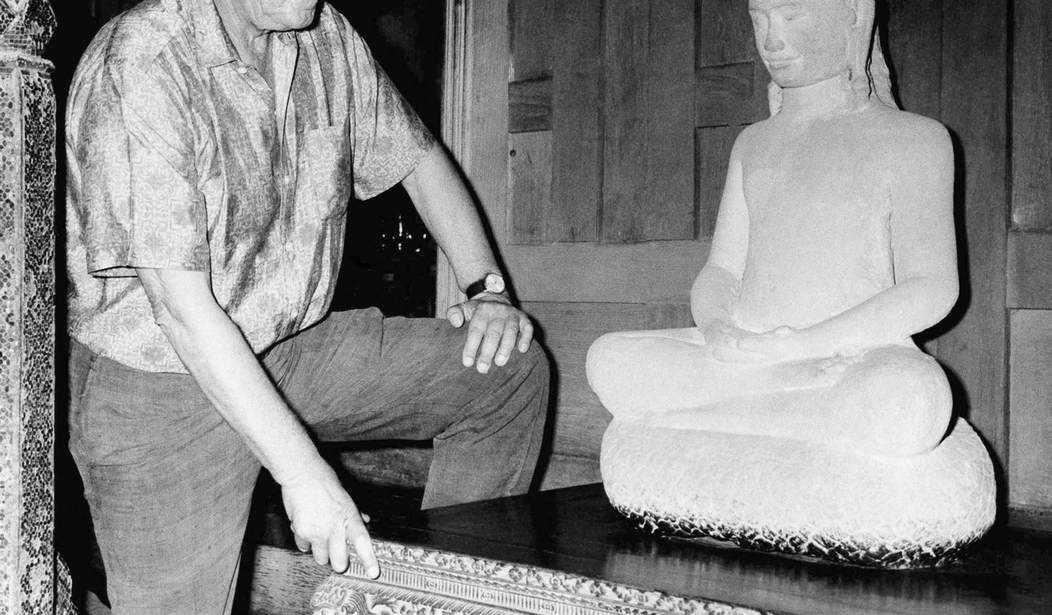Voluntarily succumbing to torture in a setting conventionally associated with relaxation is a controversial opinion, perhaps, but let me defend it if I might.
In the throes of it, I wonder why I voluntarily paid 190 zloty ($50) here in Krakow, Poland for this kind of inhumane treatment; it's much cheaper in the motherland, Thailand.
Related: Little-known Southeast Asian Herb Boosts Testosterone Naturally
It is only after the intense and highly focused pain inflicted on target tissue after target tissue relents that I can begin to appreciate what experience I have just procured.
(There are, of course, many established, quantifiable, more mundane health benefits of deep tissue massage besides therapeutic agony. In one study, for example, researchers induced psychological stress in participants via a ten-minute math test and then massaged them to measure the effect on their stress levels with salivary alpha-amylase levels, an enzyme associated with increased sympathetic nervous system activity, as the yardstick. They found that Thai massage reduced stress and also that the practice improved heart-rate variability — the varying amount of time between heartbeats, another marker of nervous system function.)
Via Medical Science Monitor (emphasis added):
Stress can cause psychological and physiological changes. Many studies revealed that massage can decrease stress. However, traditional Thai massage has not been well researched in this regard. The purpose of this study was to investigate the immediate effects of traditional Thai massage (TTM) on salivary alpha-amylase levels (sAA), heart rate variability (HRV), autonomic nervous system (ANS) function, and plasma renin activity (PRA)…
The current study has demonstrated that TTM can reduce psychological stress, as indicated by decreased sAA levels. We also found that TTM can increase HRV, as indicated by the increase of SDNN, RMSSD, HF, and LF. The increase in ANS function was indicated by increased ANS activity and stress resistance, and decreased stress index and plasma rennin activity. Further studies should focus on long-term effects of TTM on these parameters.
It delivers various other benefits like better circulation, joint mobility, etc.
But truth be told — and I say this not just as a dyed-in-the-wool masochist — I believe the intentional infliction of therapeutic pain, titrated and intentional, is the biggest benefit of all.
As an amateur psychologist studying the human condition for many years now, I have come to believe that we are generally far too comfortable for our own good in our everyday lives.
Related: Converted Pagan Headhunters and the Shining City on a Hill
I further believe this unending, numbing comfort leads to various forms of neuroses; man was not meant to live in the lap of luxury permanently, popping proverbial grapes and wine into his mouth in a loincloth and cavorting with prostitutes day and night like an inbred Roman prince.
The lust for comfort, that stealthy thing that enters the house a guest, and then becomes a host, and then a master.
—Khalil Gibran
There are many reasons to support this argument, not least of which being that one cannot appreciate the luxury of comfort without exposure from time to time to its opposite, in the same way, one cannot appreciate a breezy summer’s day or the first snowfall without any contrast.
Western massages, in my experience, are far too gentle to do the trick.
The dainty massage at the day spa is not what we need to achieve therapeutic suffering; what we need are the sharpened little elbows of a Thai grandma who has labored with those arms her whole life and developed an unapparent and uncanny strength in them for inflicting massive amounts of temporary, controlled pain for our own good.










